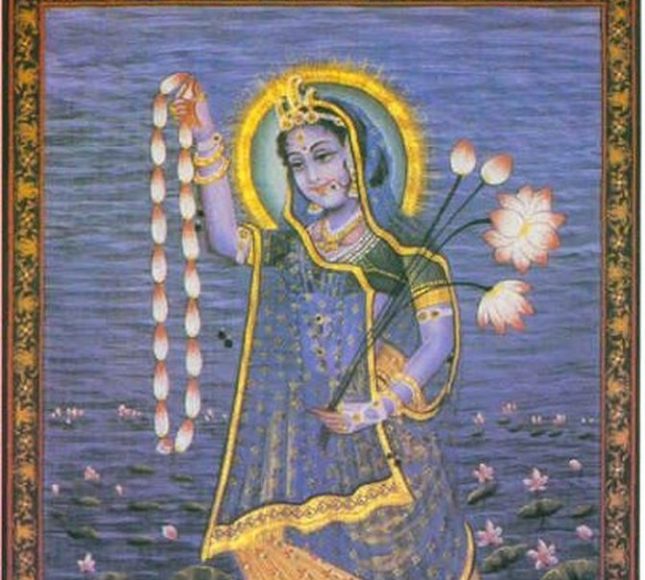JAMUNA (YAMUNA) Ganga, Jamuna, Godavari and Sarasvati make effort to touch the dust of the feet of saints. (Malar M. 4, p. 1263) It is the Guru (Ramdas), who assumed the birth and work of Machh (fish incarnation), Kachh (tortoise incamation) and Baraha (boar incarnation) and who (as Krishna) played the game of ball on the bank of Jamuna. (Swayye Mahle Chauthe Ke, p. 1403) The river Yamuna is described in the Puranas as the daughter of the sun (Surya). For sometime Krishna played on its banks. It is said that Krishna\’s elder brother Balarama compelled the river to change its course.
References :
1. Kohli, Surindar Singh (ed), Dictionary of Mythological References in Guru Granth Sahib, 1993
In Hindu mythology, Yamuna, also known as Jamuna, is a sacred river and goddess. She holds immense spiritual significance and is considered the daughter of Surya, the Sun God, and Saranyu, his consort. Yamuna is the sister of Yama, the God of Death, which connects her deeply to concepts of life, death, and renewal.
Key Aspects of Yamuna:
Divine Origin:
- Yamuna is believed to have descended from the heavens to purify the earth. Her waters are considered life-giving and are revered for their ability to cleanse sins and grant liberation (moksha).
Connection to Lord Krishna:
- The Yamuna River is closely associated with Lord Krishna’s childhood and youth in Vrindavan. Many of Krishna’s divine pastimes (lilas), such as his playful frolics and dances with the gopis, occurred on the banks of the Yamuna. This connection makes her deeply significant in Vaishnavism.
Symbolism:
- Yamuna represents the eternal flow of life and the connection between the earthly and divine realms. She symbolizes devotion, purity, and spiritual growth.
- Her link to Yama also represents the cycle of life and death, emphasizing the balance of existence.
Rituals and Worship:
- The Yamuna is worshipped during various festivals, such as Yamuna Jayanti, which celebrates her descent to Earth. Bathing in her waters is considered a sacred act that cleanses the soul and aids spiritual ascension.
- Along with the Ganga, she is one of the Char Dham rivers of spiritual significance.
Cultural Significance:
- The Yamuna River flows through iconic locations such as Mathura, Vrindavan, and Agra, making her an integral part of Indian culture, history, and religious practices.
Yamuna’s divine stature and her connection to Krishna make her a beloved deity, revered not just for her physical presence as a river but also for her spiritual essence.



